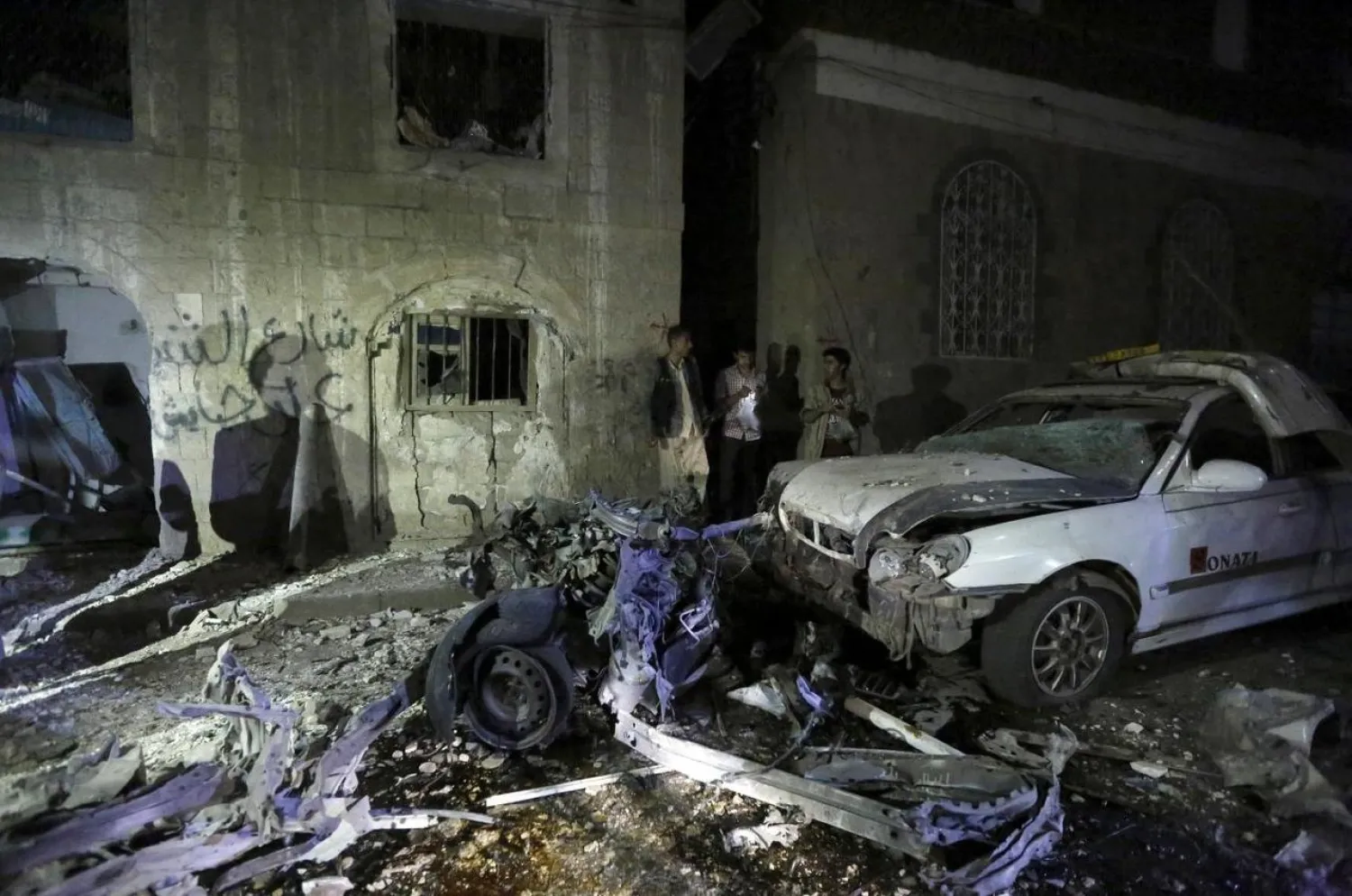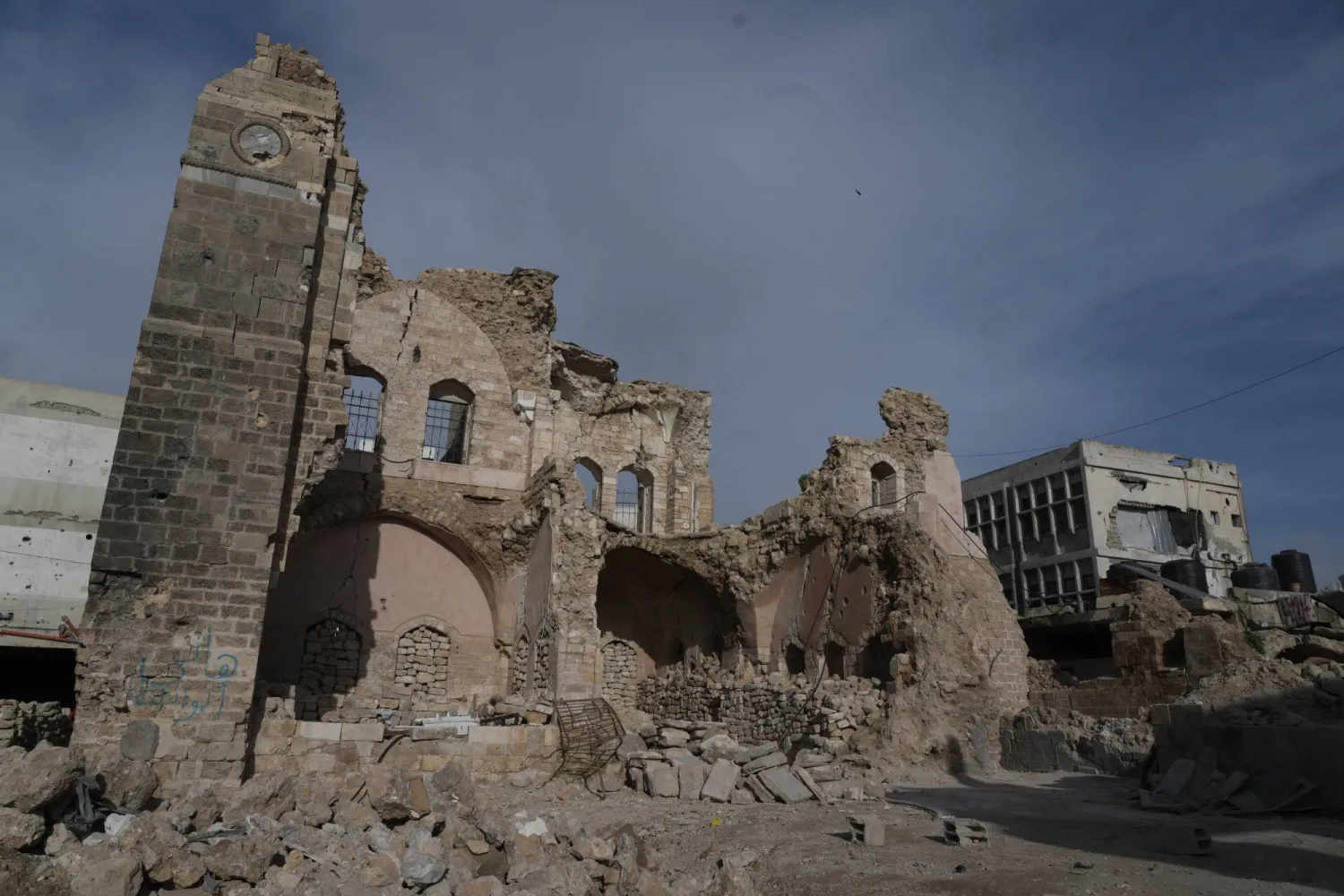The developments in Yemen in recent days have revealed that the terrorist Iran-backed Houthi militias are providing cover for the al-Qaeda and ISIS groups in the war-torn country through Tehran’s direct backing.
The Yemeni Interior Ministry had revealed the arrest of a Houthi terrorist cell that was operating under ISIS and Qaeda guise to destabilize Yemen and target state leaderships. The Yemen military also announced the launch of a wide-scale security operation to crackdown on ISIS and remaining members of al-Qaeda who are present in the western countryside of the southern Taiz province.
This raises the question on whether the Houthis have paved the ground for the spread of terrorism throughout Yemen.
Experience has shown that terrorism and its various affiliates thrive in unstable conditions. This is why, since the Houthi coup of 2014, terrorist organizations in Yemen have sought to take advantage of the poor security on the ground in order to impose their influence in the country.
Experts have, however, pointed to the deep ideological and organizational differences between al-Qaeda and ISIS that have sometimes led to clashes between them. Moreover, Iran also adopts different ideologies than these two groups, so what could possibly bring all three of them together?
Observers of the situation in Yemen would explain that the Houthis are keen on working with ISIS and al-Qaeda in order to ultimately further Iran’s interests in the country.
In an article in the Washington Post last year, Oxford University researcher Elisabeth Kendall details how al-Qaeda was able to bolster its presence in Yemen, saying it “increased its numbers and war chest by staging a massive jailbreak, seizing military hardware and robbing the central bank.”
“The key to al-Qaeda’s success was not direct recruitment. Even at its peak, its core fighters numbered no more than 4,000. Rather, it worked to secure buy-in from key city and tribal leaders and to win passive toleration from local populations,” she explained.
“Unlike the ISIS, al-Qaeda decided on a gradualist approach to governance and struck a local power-sharing deal,” she went on to say.
Yemen is very valuable for al-Qaeda, especially after its greatest competitor, ISIS, suffered severe blows there.
Al-Qaeda realizes that Yemen lies in a strategic location where it could pose a threat to regional and international security. The group could also expand north into other parts of Yemen and even into neighboring Saudi Arabia.
ISIS, meanwhile, did not enjoy a prominent presence in Yemen before the Houthi coup. As the organization suffered blows in Iraq and Syria, many of its fleeing members sought refuge in Yemen, especially in advanced positions that were held by the Houthis. Moreover, defections within al-Qaeda also fell in ISIS’ favor. The group had gained enough ground in 2015 and 2016 to even declare the establishment of alleged “states” in Yemen.
Ultimately, however, ISIS could never compete with al-Qaeda, which wields greater influence in Yemen. Furthermore, a merger between the two groups was never an option. One senior Qaeda member had once said that ISIS’ ideology seemed too “alien” to the group.
On the ground, ISIS failed in winning over the people. It was unable to come up with a specific cultural vision that appeals to the Yemeni people. It also did not take part in development projects in the country and came under criticism from former ISIS members, who had defected from the group to al-Qaeda.
In contrast, al-Qaeda appears more ideologically cohesive than ISIS, which, in turn, posed a greater threat to Yemen through its operations. A sign of this bloody agenda was ISIS’ claiming of 2015 bombings of two Sanaa mosques that left 142 people dead. Al-Qaeda had, at the time, distanced itself from the attacks, saying that ISIS found it easy to shed blood.
Tensions between the rival groups escalated into clashes on the ground, notably in the southern provinces in what was seen as al-Qaeda feeling threatened by ISIS’ infiltration into the area. The group sought to confront its rival and bar it from seeping into a region where it has for years sought to entrench itself.
Again, what could possibly bring together such seemingly different groups under the same umbrella?
The Houthis and al-Qaeda may have ideological differences, but a close reading of United Nations Security Council reports on Yemen since 2014 reveal the ties between slain former President Ali Abdullah Saleh and al-Qaeda. They also implicate the Houthis in planting explosives in Yemeni cities and blaming the attacks on ISIS. This underscores the complicity between the Houthis and al-Qaeda, revealing that they are ultimately two sides of the same coin and that they are both products of Iran. It also demonstrates the double role played by Iran, in that it has forged ties with each of al-Qaeda and the Houthis.
What about ISIS? Is there evidence of Iran’s backing of the group in Yemen?
On the surface, Tehran had launched a religious edict to combat ISIS, but in reality, it has benefited the most from the group’s emergence in the region. Iran, which has not ceased its verbal condemnation of the group, has never fought it on the ground. In turn, ISIS, which openly claims enmity to Shiites, avoids attacking Iranian interests, confirming that the two sides have common goals.
Iranian-American researcher at Harvard University, Dr. Majid Rafizadeh revealed that Tehran had used ISIS to bolster its regional power. He explained that it had used the emergence of the group in Syria and Iraq to justify the presence of its militias in these countries. Iran will not actually act on its claims that it wants to eliminate ISIS because it is in its interest for the terrorist group to remain. Some observers have even described ISIS as Iran’s Trojan Horse.
Returning to Yemen, does the evil of alliance of the Houthis, Iran and ISIS appear to be gaining ground against the international coalition? The Arab coalition has scored major victories against the terrorist militias. It has also managed to capture 85 percent of regions that were on the verge of falling in Houthi clutches.












